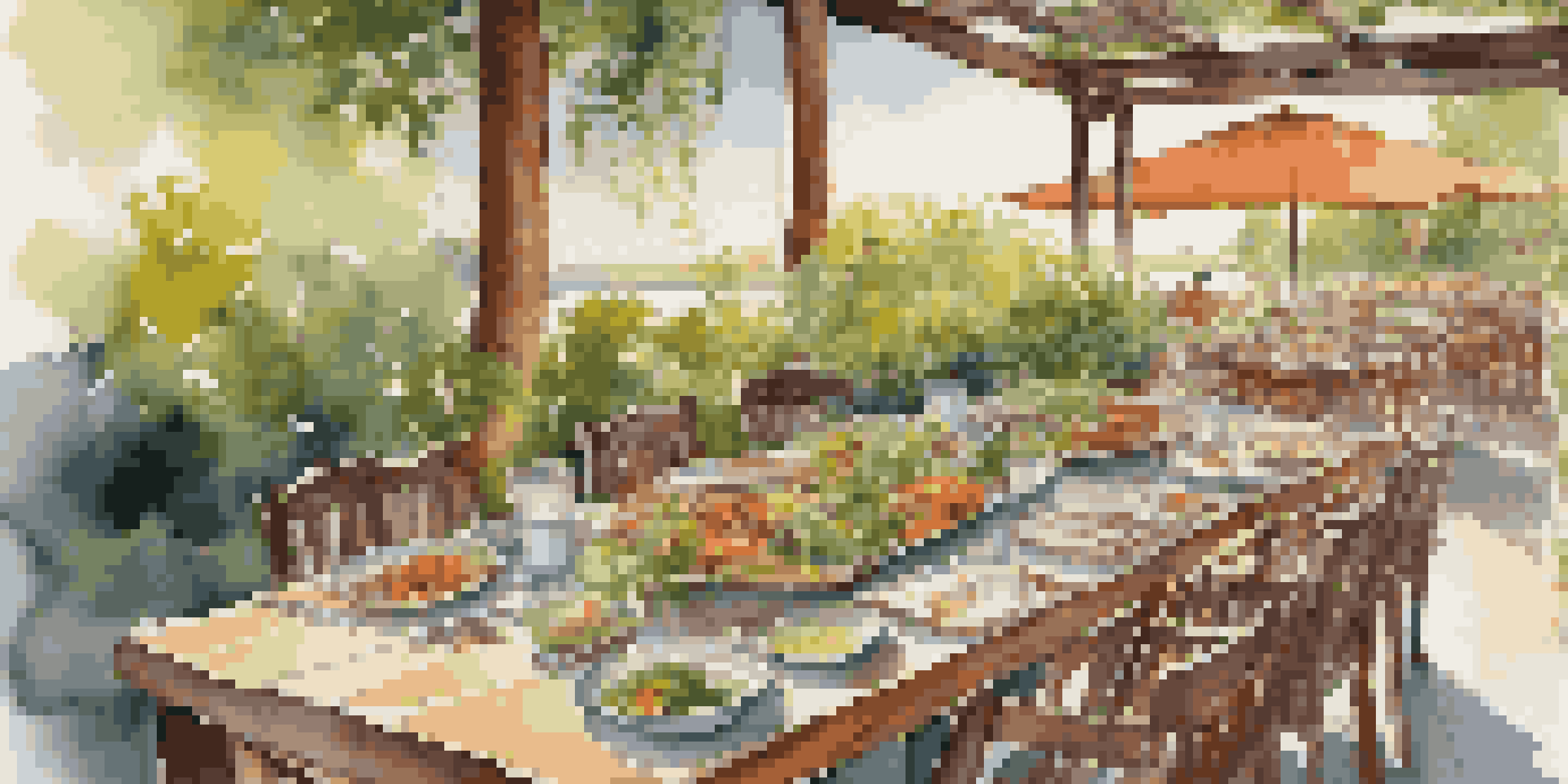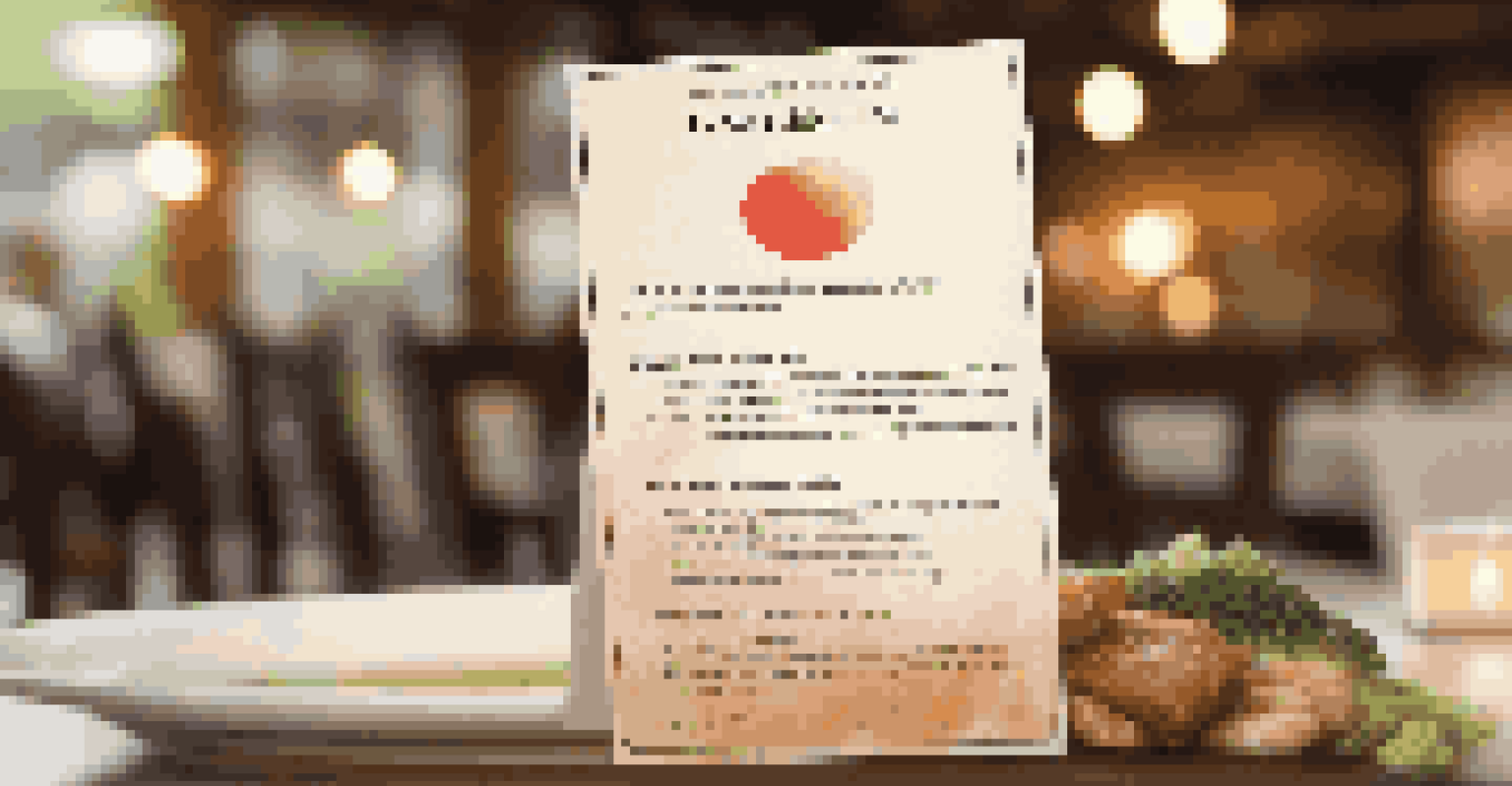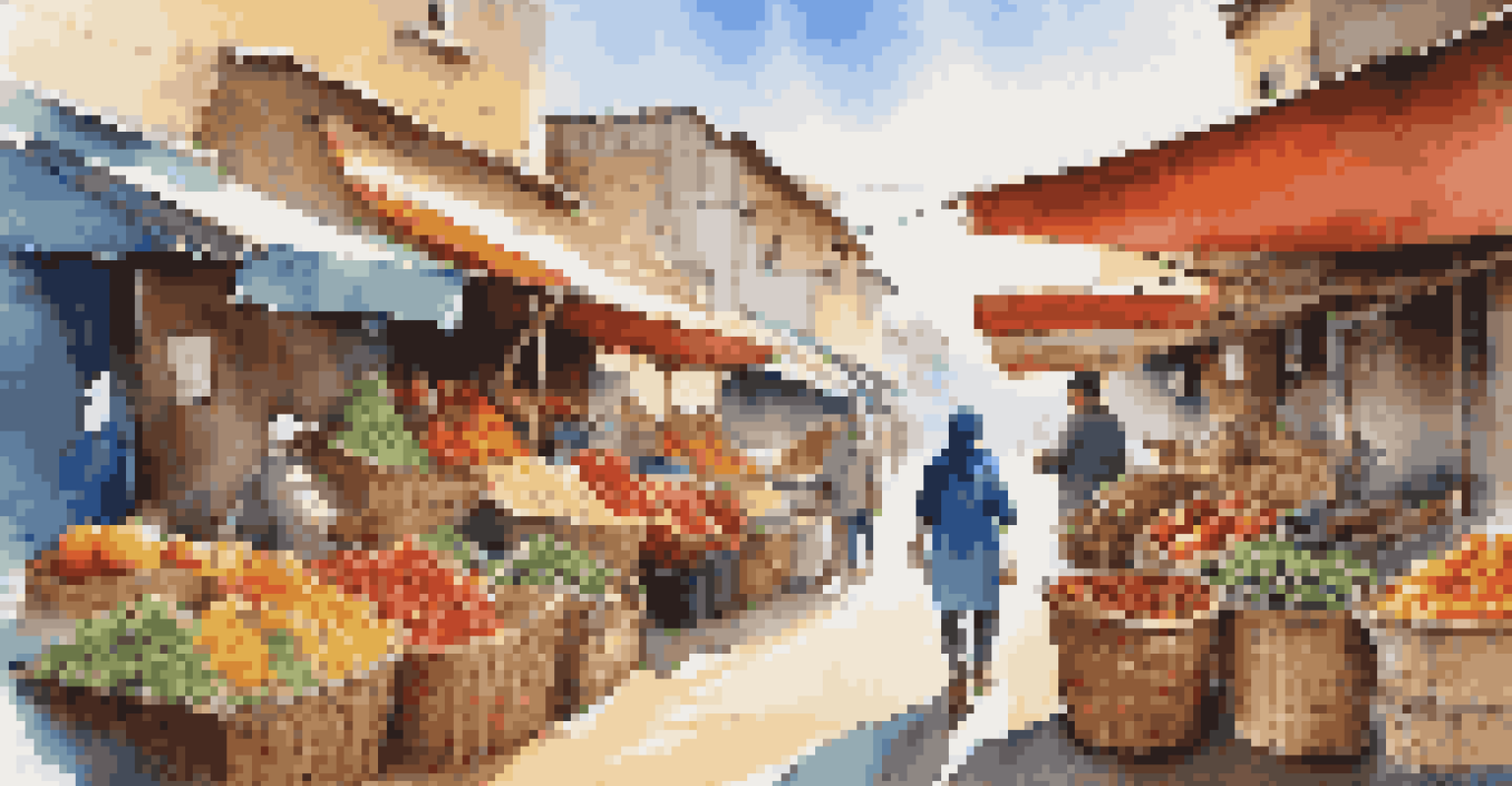How to Communicate Dietary Needs While Traveling Abroad

Understand Your Dietary Needs Before Traveling
Before you embark on your journey, it's essential to have a clear understanding of your dietary needs. Whether you have food allergies, follow a specific diet like vegan or gluten-free, or have intolerances, knowing these details will help you communicate effectively. Take time to research your destination's cuisine and typical ingredients to anticipate any potential challenges.
Traveling – it leaves you speechless, then turns you into a storyteller.
Make a list of foods you can eat and those you must avoid. This not only helps you stay organized but also gives you a quick reference to share with restaurant staff or local friends. Understanding local dishes and their components can empower you to make informed choices while enjoying new culinary experiences.
Lastly, consider carrying a translation card that outlines your dietary restrictions. This simple tool can bridge the language gap and ensure that your needs are understood, allowing you to focus more on enjoying your travels.
Research Local Cuisine and Customs
Diving into the local cuisine can be one of the most exciting aspects of traveling. However, it's crucial to research typical dishes and ingredients used in the region you'll be visiting. This knowledge will not only prepare you but also help you avoid any unpleasant surprises when it comes to food.

Different cultures may have unique food customs, and understanding these can enhance your dining experience. For example, in some places, vegetarian meals may not be common, while in others, they could be the norm. Knowing what to expect will help you navigate menus with confidence.
Know Your Dietary Needs Before Travel
Understanding your dietary restrictions and researching local cuisine can help you navigate food options more effectively.
You can also explore online forums or food blogs that focus on your destination. These resources often share tips from fellow travelers about where to find safe and suitable dining options, making your journey smoother.
Learn Key Phrases in the Local Language
Language barriers can pose a challenge when communicating your dietary needs abroad. To overcome this, learning a few key phrases in the local language can be incredibly helpful. For instance, phrases like 'I am allergic to...' or 'I cannot eat...' can pave the way for clearer communication.
Food is our common ground, a universal experience.
Using translation apps can also assist you, but having a basic understanding of the language shows respect for the culture. Many locals appreciate when travelers make an effort to speak their language, making them more willing to accommodate your needs.
Additionally, writing down your dietary restrictions in the local language can come in handy when ordering food or interacting with vendors. This proactive approach not only ensures your safety but also fosters a more engaging travel experience.
Utilize Dietary-Friendly Apps and Tools
In today’s digital age, various apps and online tools can make communicating dietary needs a breeze. Apps like 'Find Me Gluten Free' or 'HappyCow' cater specifically to those with dietary restrictions, helping travelers locate suitable eateries. These tools can save you time and stress when searching for food options.
Additionally, many translation apps now offer features that allow you to input phrases and translate them into the local language. This can be particularly useful when dealing with complex dietary needs that require detailed explanations.
Use Tools to Communicate Needs
Utilizing dietary-friendly apps and translation tools can simplify the process of expressing your dietary requirements abroad.
Remember to download these apps before your trip, as having them offline can be a lifesaver in areas with limited internet access. With the right tools at your fingertips, you can focus on enjoying local delicacies without compromising your health.
Communicate Your Needs Clearly at Restaurants
Once you've arrived at your destination, effectively communicating your dietary needs at restaurants is crucial. Start by politely greeting the staff and expressing your interest in their menu. A friendly demeanor can go a long way in ensuring they are attentive to your needs.
When discussing your dietary restrictions, be as specific as possible. Instead of just saying you’re allergic to nuts, specify which types pose a risk and ask if the dishes contain them. This clarity can help servers understand your needs and provide better recommendations.
Don't hesitate to ask questions about how dishes are prepared or what ingredients are used. A little curiosity can prevent misunderstandings and help you find safe options while enjoying the local flavors.
Be Prepared for Language Barriers
Despite your best efforts, language barriers may still arise. In such cases, remain patient and calm; frustration can lead to miscommunication. If you’re struggling to convey your needs, try using gestures or pointing to specific dishes on the menu to illustrate your point.
Having a translation app or phrasebook handy can be invaluable in these situations. If a server seems confused, you can show them the translated text, helping clear up any misunderstandings about your dietary restrictions.
Stay Flexible with Culinary Options
Being open-minded and adaptable can enhance your travel experience, allowing you to enjoy local flavors while managing dietary restrictions.
Moreover, don’t hesitate to ask locals for assistance in finding someone who speaks your language if necessary. Often, fellow diners or staff members may be willing to help, ensuring you enjoy your meal safely.
Stay Flexible and Open-Minded
Traveling with dietary restrictions requires a blend of planning and flexibility. While it's vital to communicate your needs, being open to trying new dishes that align with your dietary preferences can enhance your culinary experience. Sometimes, local chefs may surprise you with their creativity in accommodating your restrictions.
If a restaurant can't meet your needs, consider exploring nearby options or local markets for fresh ingredients. This not only allows you to enjoy local flavors but also gives you the opportunity to prepare your meals if necessary.

Lastly, remember that travel is about enjoying new experiences. Embrace the journey, and don't let dietary restrictions hold you back from discovering the culinary delights that await.